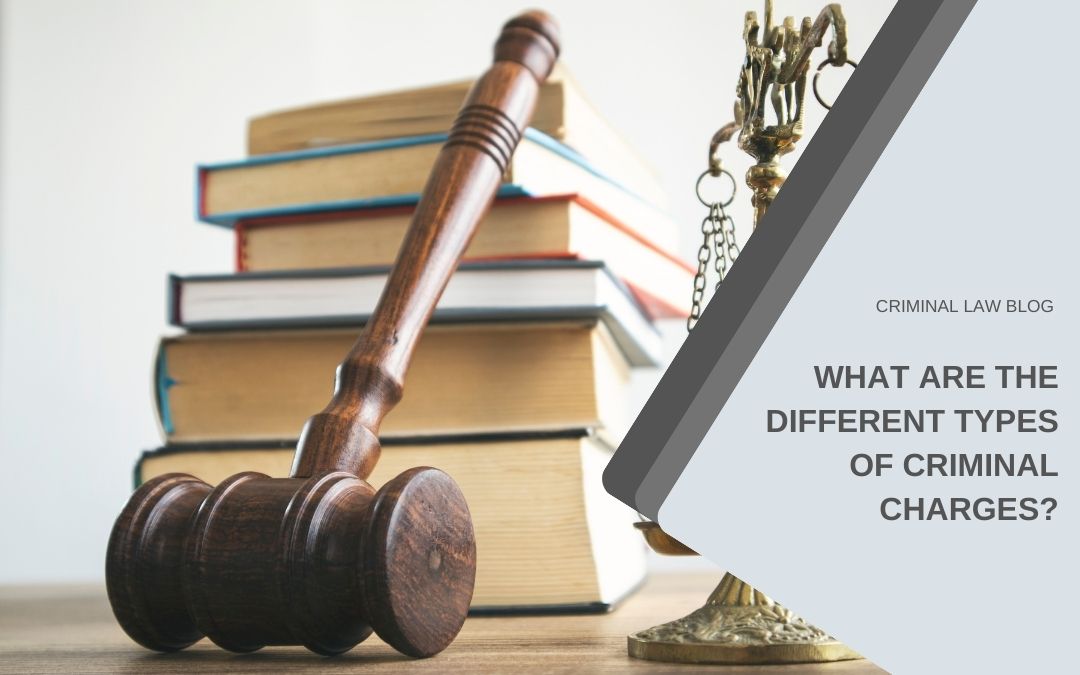The type of criminal charge assigned is related to the crime and the potential maximum allowed punishment. Essentially, a crime is an illegal act or violation of local, state, or federal law. Even though there are many types of criminal acts, these different criminal offenses can be classified in various ways.
One classification approach divides crimes into felonies, misdemeanors, and infractions.
Felony charge
Felonies consist of the most serious types of crimes, such as aggravated assault, manufacturing drugs, distributing drugs, animal cruelty, murder, tax evasion, and more.
These crimes are punishable by more than a year in prison, with more serious cases receiving life sentences without parole. Additionally, anyone who helped or abetted the felon before, during, or after the crime can also be charged with a felony.
Felonies are often further divided into classes based on the crime’s seriousness and its punishment, where the maximum term of imprisonment is:
- Class A — life in jail or capital punishment
- Class B — twenty-five years or more
- Class C — under twenty-five years but at least ten years
- Class D — under ten years but at least five years
- Class E — under five years but more than one year
Misdemeanor charge
Misdemeanors consist of crimes that are punishable by less than a year in prison, such as shoplifting, simple assault, drug possession, trespassing, public intoxication, and more.
Punishment can range from serving less than a year in prison or jail to community service, probation, or fines.
Like felonies, misdemeanors are further classified based on the crime’s seriousness and its punishment, where the maximum term of imprisonment is:
- Class A — no more than one year but more than six months
- Class B — no more than six months but more than thirty days
- Class C — no more than thirty days but more than five day
There are times, however, when a misdemeanor can be treated like a felony. For instance, driving under the influence can become a felony instead of a misdemeanor if it’s not a first offense or someone was killed.
Infraction charge
Infractions are petty crimes where jail time is not usually a possible outcome. Typically, the punishment will be a fine, and the offender may not have to appear in court.
These often involve violations of local laws or ordinances, like disobeying:
- No parking zones
- Traffic ordinances
- Speed limits in school zones
- Obtaining proper licenses for operating a business
- And more
However, an infraction can be upgraded to a misdemeanor if someone was hurt as a result of the petty crime.
Another way to classify types of criminal charges is to group them into one of five main categories.
Crimes against a person
These crimes result in physical or mental harm to another person. These can be further divided into:
- Homicide — such as first-degree murder, voluntary manslaughter, or vehicular homicide
- Violent crimes — such as assault and battery, child abuse, domestic abuse, kidnapping, rape, or arson
Crimes against property
These are crimes focused on defacing, destroying, or stealing another person’s property — instead of intentionally involving harm toward a person. Some examples include burglary, auto theft, arson, shoplifting, robbery, and larceny.
Financial or white-collar crimes
These are crimes committed for financial gain and involve deception or fraud. Examples include blackmail, cybercrime, money laundering, tax evasion, embezzlement, and fraud.
Statutory crimes
A statute refers to a formal law passed by and signed into effect by a state, city, or country to deter people from engaging in behaviors that are harmful to society. Statutes can vary by state and city. As a result, a statutory crime is an illegal and punishable act under the written law.
Technically, all criminal acts, including the ones discussed above, are essentially statutory crimes since a statute prohibits the action. But four common categories of statutory crimes include drug, alcohol-related, traffic, and financial crimes.
Inchoate crimes
These are crimes that were initiated but not completed or acts that assist in the commission of a crime. To be found guilty, the person must take ‘substantial steps’ to complete the crime, not just intending to commit the crime.
Examples of inchoate crimes include attempt, conspiracy, and aiding and abetting.

